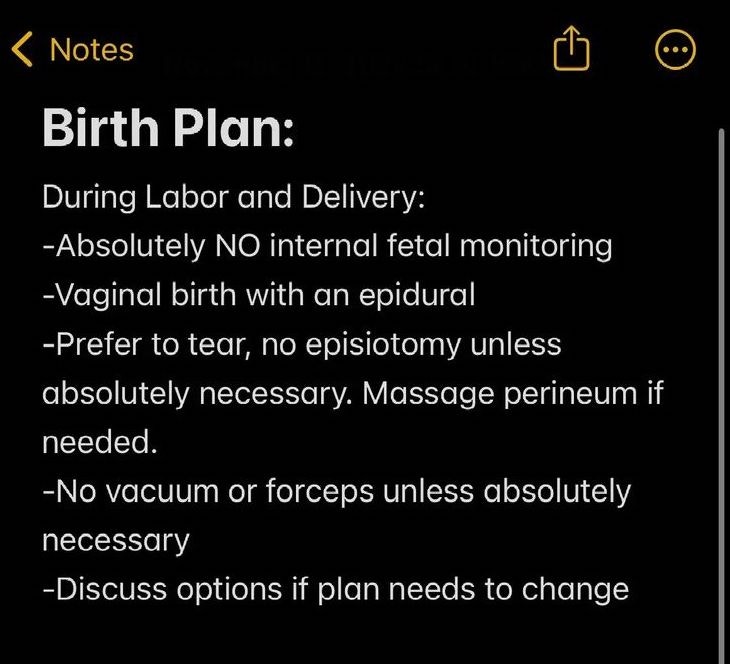
Birth DGAF About Your Type-A Personality
Words by Frani Chung
We’ve romanticized giving birth as something we can put on a Pinterest board and turn into a TikTok. We make birth plans, find the highest-rated doctors, hire doulas, debate hospital versus home delivery like it’s a menu we get to choose from.
But when the stakes are high, giving birth is not a script. It doesn’t care about your hospital bag or your going-home outfits—giving birth is a reckoning. It’s unpredictable, wild, pure mayhem. It’s also incredible.
My first labor was the stuff of nightmare lore. It was long and scary and ended in a hemorrhage, but also with one beautiful daughter. I had already been through the trenches: infertility, pregnancy loss, IVF, complications ranging from ectopic pregnancies to Asherman’s Syndrome.
When I got pregnant with my second child, I wondered if I could out-plan the chaos of childbirth. I was determined to reclaim some semblance of control. I yearned for a labor redemption. I packed a hospital bag with lavender spray, a long charging cord, my favorite snacks.
I drank the herbs and potions and got the acupuncture. I tried infusions from specialists and held crystals. I put worry dolls under my pillow. I did the procedures. I made and lost embryos. I had miscarriages with embryos that had tested normal. I organized a labor playlist called Seven for this miracle pregnancy, our seventh with one living child to show for it.
I thought I had accounted for everything. But the truth is, birth laughs in the face of plans. A rare labor complication—umbilical cord prolapse—shattered any illusion of control I had left.

"But when the stakes are high, giving birth is not a script. It doesn’t care about your hospital bag or your going-home outfits—giving birth is a reckoning. It’s unpredictable, wild, pure mayhem. It’s also incredible. "
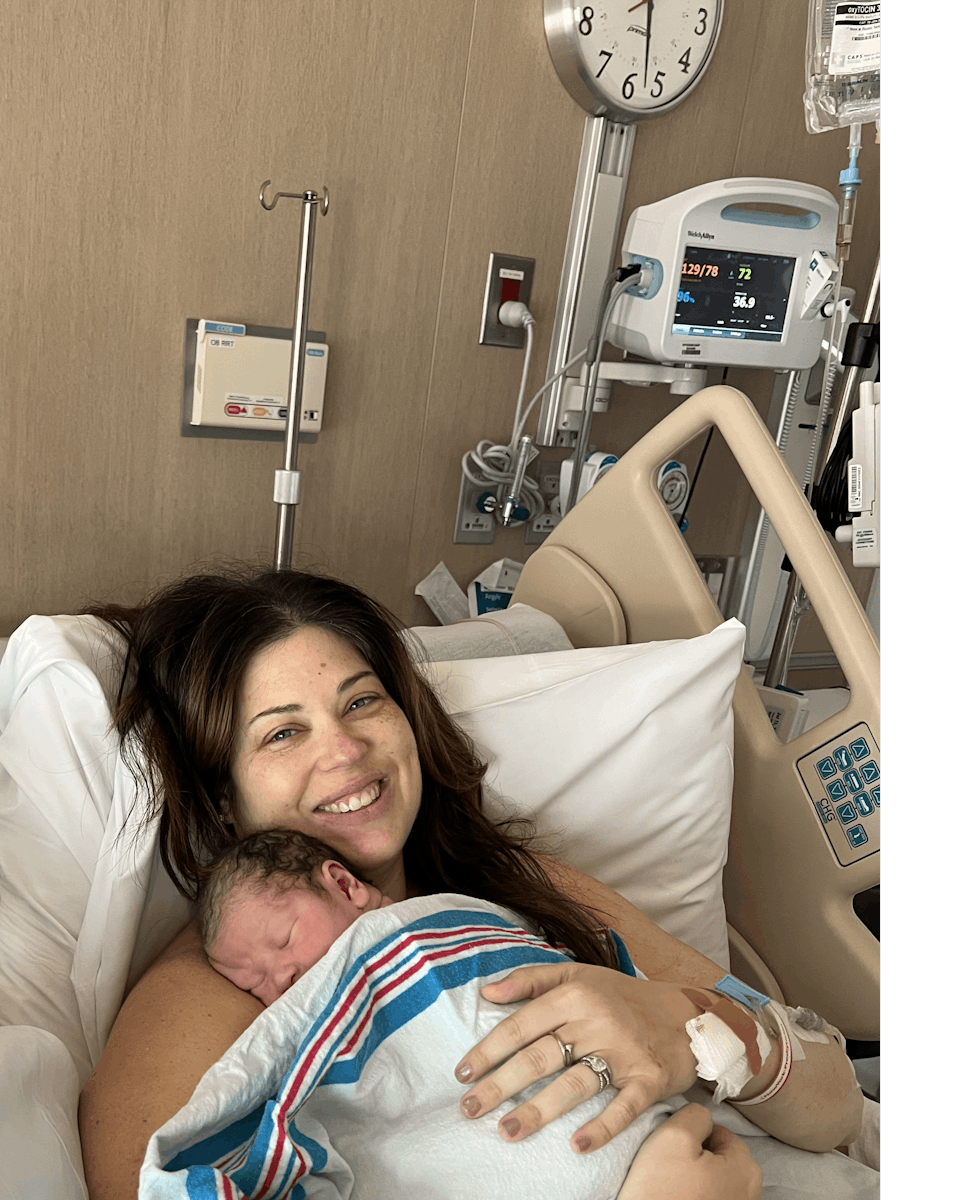

On induction day, my son had wedged himself in the wrong direction, his head burrowed into my ribs. I underwent an External Cephalic Version, a procedure to manually turn a breech baby. It was agony, but a few moments of pain felt small in the face of everything I had already endured.
When labor began, I pressed play on Seven. Mumford & Sons, Elton John, Florence + The Machine, Van Morrison, Lorde, Tracy Chapman played while I grunted, breathed, and let contractions wash over me. I could do this. We could do this. My husband and I held hands, marveling at how hard we had worked, wondering aloud if we could ever love another human as much as we loved our daughter at home.
Then my OB entered for a routine check.
“Cord! Cord! Cord!”
Her voice cut through the stillness, and then, chaos.
The umbilical cord had slipped out first. A true emergency. The kind where seconds, not minutes, determine survival.
My mind went tinny, ready to escape to a safer, calmer place. But I yanked myself back. I found my husband’s face—fear-stricken, not knowing what was happening to me, to our baby.
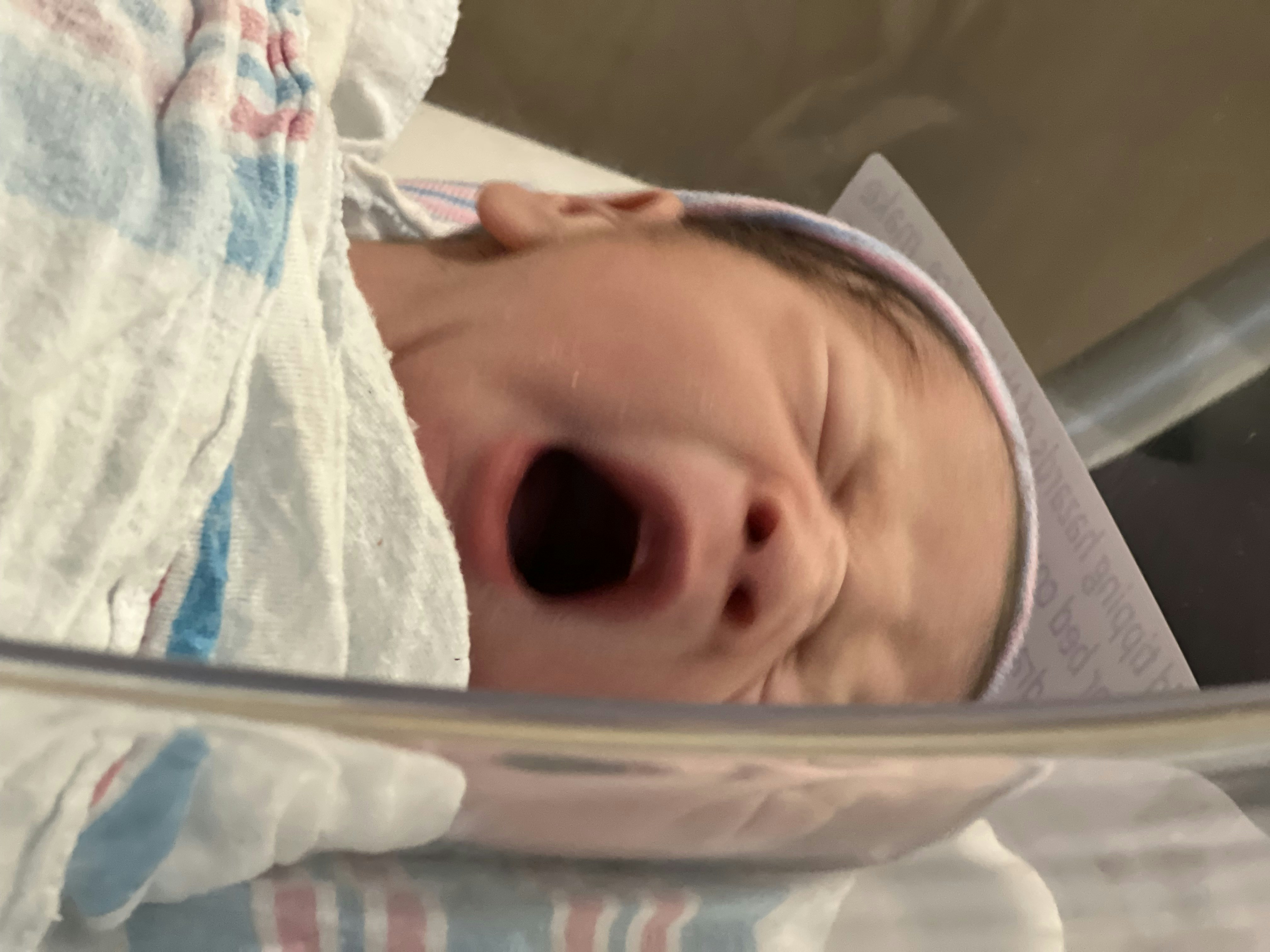
Dr. B jumped onto my hospital bed, pressing against my son’s head, keeping him from descending, keeping him alive. She rode the stretcher with me, hand in place, shielding his oxygen supply until a nurse took over.
The OR was a blur of bright lights and voices shouting medical orders. I was lucid and aware enough to see and hear everything. My OB moved with the kind of urgency and precision that only comes from practice and confidence. I tried to stay present, but my mind was on another planet—from adrenaline, from fear, from the raw, savage nature of what was happening to me.
The other doctors talked about my first labor. They remembered how crazy that one was, too. We were the stuff of legend and lore.
Minutes later, I heard it. My son was crying outside of my body. He was alive. I was alive. I was sobbing, and I was shaking from adrenaline, the medication, maybe both. A nurse asked if I was steady enough to hold him.
I had never been more sure of anything in my life.
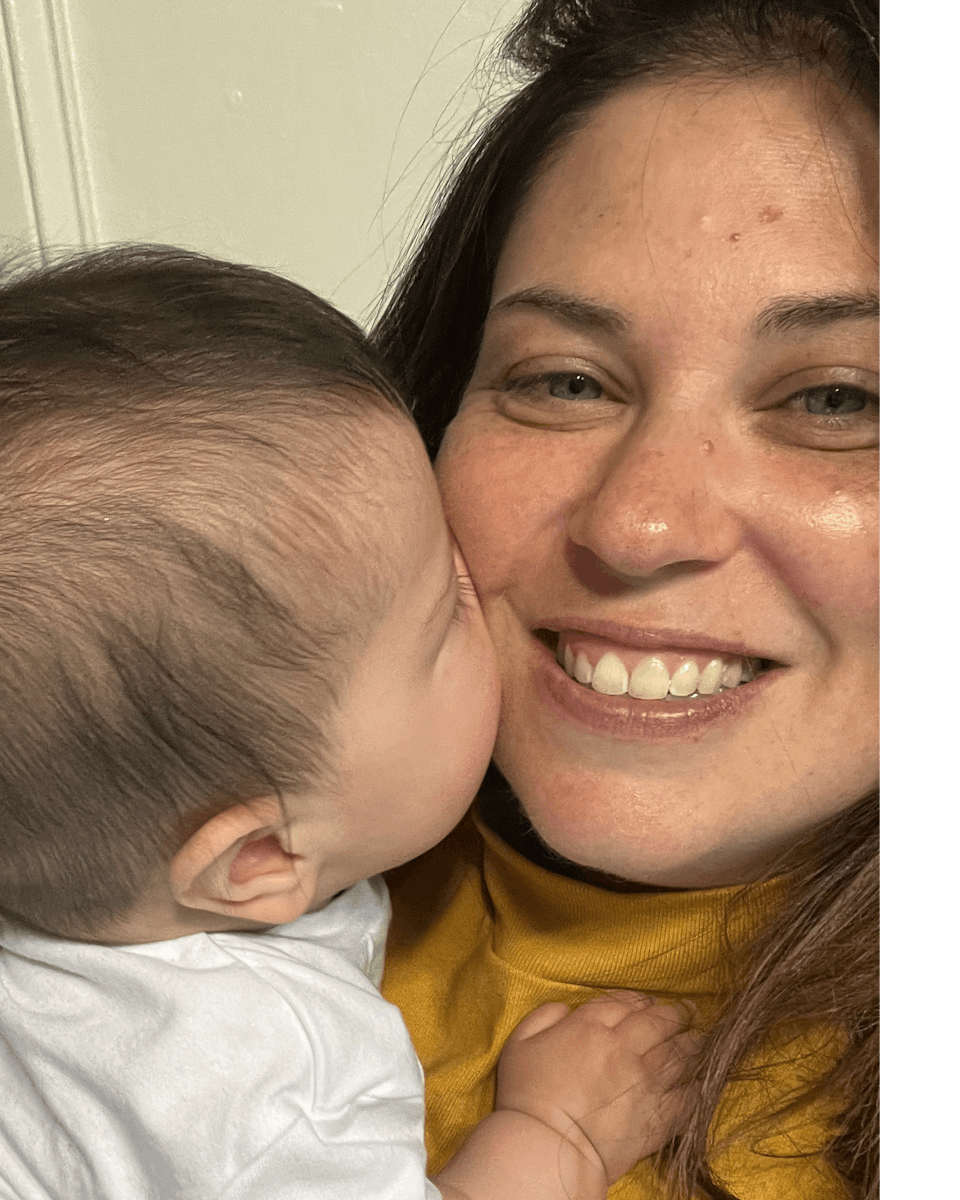
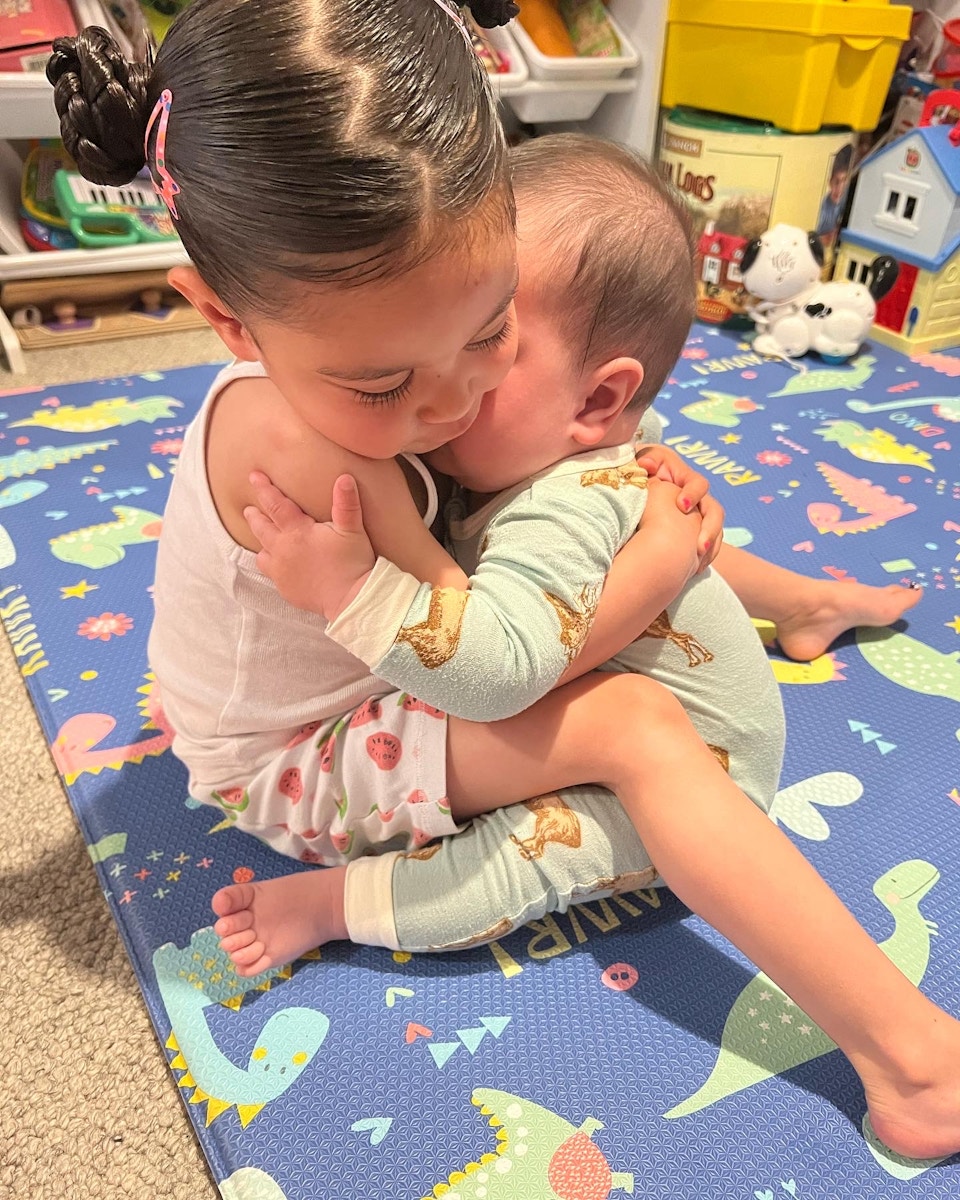
"By the time I finally reached a second viable pregnancy, I was determined to reclaim some semblance of control. But my son’s birth taught me that control is an illusion. I also learned that “good labor” doesn’t always look the way we imagine it. "

My birth redemption? Failed. My lavender spray? Useless. My playlist? Non-existent in the whirring of the operating room. My snacks? Not eaten until the next day.
I’m a type-A, optimize-everything, plan-for-it-all type of person. I’m easygoing as long as it’s all going my way. I lived by the notion that our destiny is our choice (except, of course, for societal and systemic inequity and all of the fundamental reasons why that belief is BS).
By the time I finally reached a second viable pregnancy, I was determined to reclaim some semblance of control. But my son’s birth taught me that control is an illusion. I also learned that “good labor” doesn’t always look the way we imagine it.
Sometimes, it looks like a doctor shouting “cord” and leaping onto your bed to save your son’s life. Sometimes, it looks like things are moving faster than your brain can process, your hero OB cutting through seven layers of skin to bring your baby earthside. It’s messy, frenetic, and above all, it is life.
Becoming a mother is both savage and sacred. True strength lies not just in resilience but also in accepting our lack of control despite our best intentions. My family-building journey forced me to confront those limits. And, with a lot of science and surrender, it all worked out in the end.
Frani Chung is a writer who explores the profound, intersecting truths of motherhood, womanhood, parenting, and resilience—where they overlap, clash, and redefine us. A mom of two, she balances her work in integrated brand marketing with a relentless pursuit of the perfect bite, an insatiable love for entertainment and pop culture, and the ever-elusive art of staying present. She is a passionate advocate for reproductive rights and awareness. Find her at www.franichung.com.